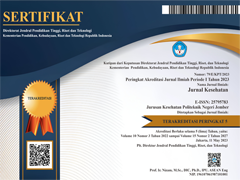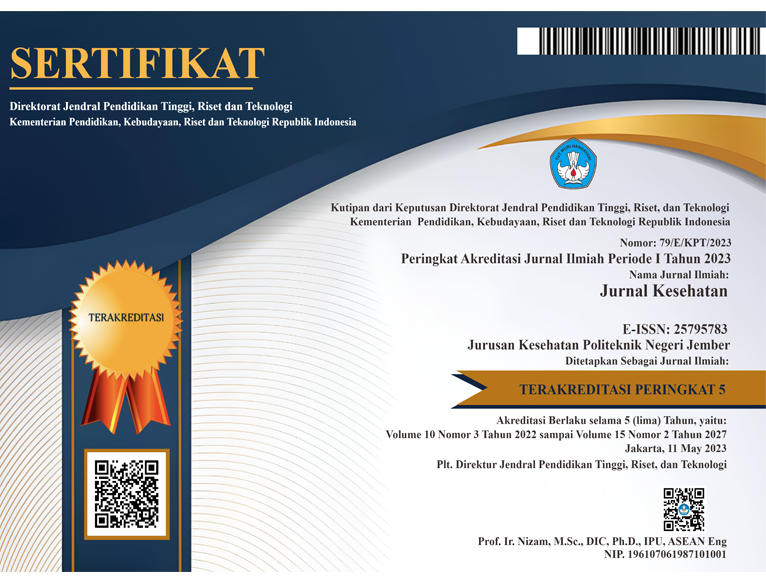Ecological Analysis Of Nutritional Status Of Toddler In Indonesia
DOI:
10.25047/j-kes.v12i3.553Downloads
Abstract
Toddlers are one of the groups that are prone to experiencing nutritional problems. This can inhibit the mental and physical growth of children and can subsequently have an impact on the next generation. The study was conducted to analyze the relationship between existing environmental variables and the nutritional status of toddlers based on provinces in Indonesia. Further analysis of secondary data from the 2022 Indonesia Nutrition Status Survey and the Central Statistics Agency of Indonesia. This study using quantitative method with univariate and correlation analyses. The unit of analysis in this study is all 34 provinces in Indonesia. The variables analyzed were the number of malnutrition prevalence, the number of poor people, and the level of education. There’s wide variability of the number of poor people. The greater the number of poor people, the greater the number of malnutrition events in toddlers. The number of poor people is positively related to the number of malnutrition events in toddlers, be it stunting, wasting, or underweight. Meanwhile, the level of education has no relationship with the prevalence of malnutrition toddlers. The results of this study are considered important as a policy basis to improve the poverty rate and strive for better economic development in Indonesia.
Keywords: education level, nutritional status of toddlers, poverty level
License
Copyright (c) 2025 Ivan Saputra

This work is licensed under a Creative Commons Attribution-ShareAlike 4.0 International License.
Authors who publish in this journal agree to the following terms:
1. Copyright belongs to the medical journal as a publication
2. The author retains copyright and grants the journal rights to the first publication carried out simultaneously under a Creative Commons Attribution License which allows others to share the work with an acknowledgment of the author's work and initial publication in this journal.
3. Authors may enter into separate additional contractual arrangements for the non-exclusive distribution of the work (eg sending it to an institutional repository or publishing it in a book) with acknowledgment of initial publication in this journal.
4. Authors are permitted and encouraged to post work online (eg in institutional repositories or on their websites) before and during the submission process, as before and larger citations of published work (see Effects of Open Access).
Selengkapnya tentang teks sumber ini














